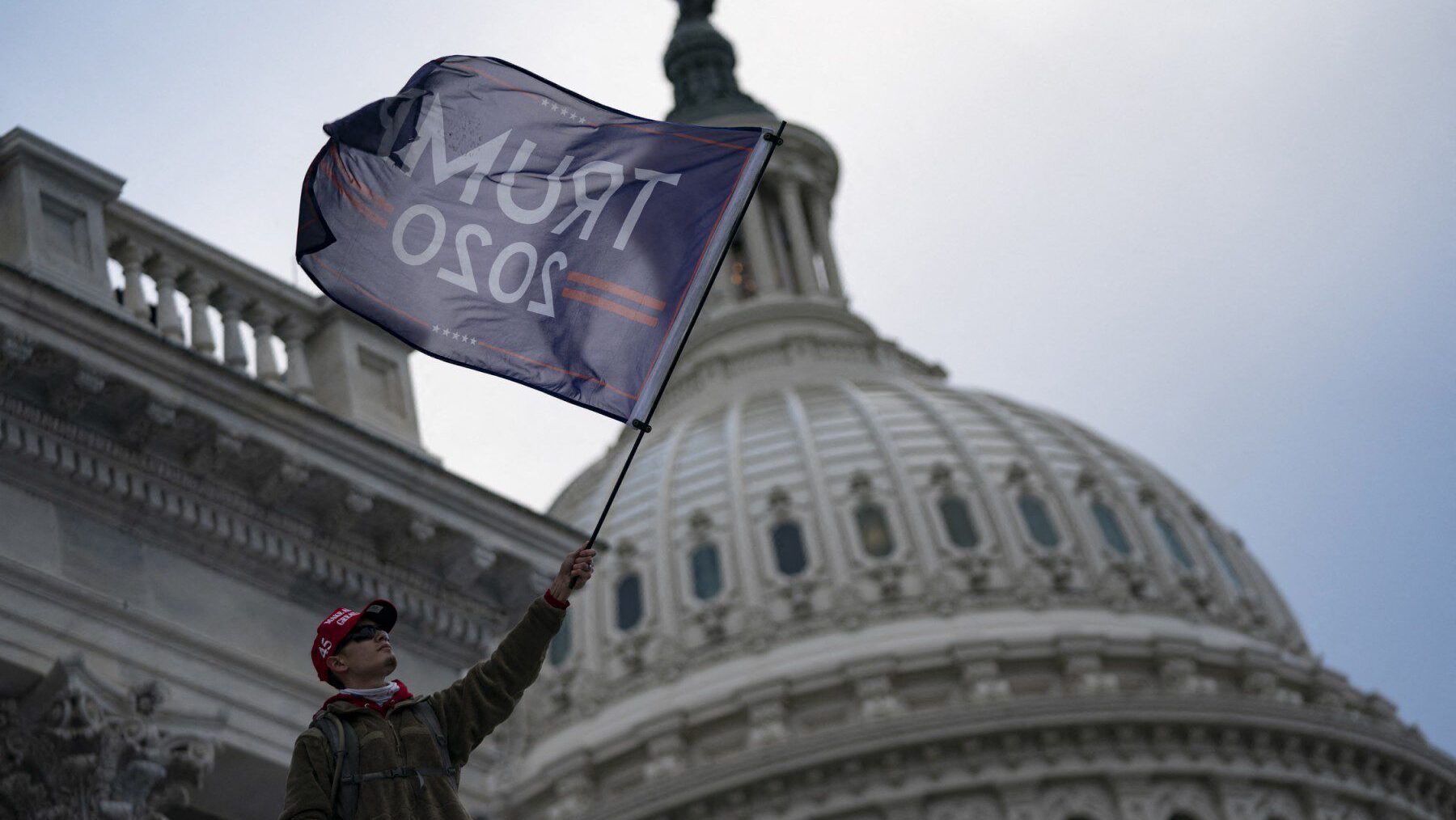
A person waves a Trump 2020 flag as supporters of President Donald Trump protest outside the U.S. Capitol on January 6, 2021, in Washington, D.C.
Photo: AFP / ALEX EDELMAN
A new report from the Department of Justice Inspector General (DOJ IG) Michael Horowitz has shed light on the FBI’s controversial use of confidential human sources (CHSs) during the inauguration day protests at the U.S. Capitol on January 6th, 2021. The report confirms the presence of 26 FBI informants among the crowds, raising fresh concerns about the bureau’s actions and transparency in handling this pivotal event.
Of the 26 informants identified, only three were officially tasked by the FBI to attend the events. One of these informants entered the Capitol building, while two others accessed restricted areas around it. The remaining 23 CHSs attended the protests on their own initiative, with three entering the Capitol and 11 venturing into restricted zones.
The report concludes that none of the CHSs were directed by the FBI to engage in illegal activity, incite others, or breach restricted areas. However, the mere presence of informants, some of whom entered the Capitol, has drawn criticism for what lawmakers and observers see as a glaring inconsistency in the application of justice. House Judiciary Committee Chairman Jim Jordan (R-Ohio) pointed out that these individuals were not charged, unlike other Americans facing severe penalties for their participation.
“This report confirms what we suspected,” said Jordan:
The FBI had encouraged and tasked confidential human sources to be at the Capitol that day. There were 26 total present. Four entered the Capitol and weren’t charged, which is not the same treatment that other Americans received.
The report also highlights a series of missteps by the FBI, including its failure to conduct a basic canvass of its field offices for intelligence from CHSs ahead of January 6th. FBI Deputy Director Paul Abbate admitted that this was a “basic step that was missed,” and the report notes that this could have provided valuable insights to help law enforcement prepare for potential threats.
Adding to the controversy, the FBI inaccurately reported to Congress that such a canvass had occurred. While the DOJ IG found no evidence of intentional deception, the confusion and lack of coordination within the bureau have raised serious questions about its competence and transparency.
The timing of the report’s release has fuelled further speculation about the FBI’s role and leadership. Just days before the report became public, FBI Director Christopher Wray announced his resignation. Critics, including Rep. Thomas Massie (R-Ky.), suggested the resignation was linked to the anticipated backlash from the report’s findings.
“It’s no coincidence that FBI Director Wray announced his resignation just prior to the release of the IG report exposing activities of FBI confidential human sources at the Capitol on January 6,” said Massie.
The report has intensified Republican concerns about the “weaponization” of federal agencies. Jordan emphasised. “This has been our concern all along—agencies being weaponized against the American people. It’s not how our system is supposed to work.”
In its response, the FBI accepted the report’s findings and pledged to improve its policies for handling events with potential domestic security risks. The agency highlighted its limited role on January 6th, noting that the event had not been designated as a National Special Security Event (NSSE) by the Department of Homeland Security (DHS). Moving forward, the FBI has promised to enhance its coordination and clarify responsibilities between its field offices and headquarters.
With the 2025 electoral certification now designated as an NSSE, the FBI assured the public it is working closely with DHS, the Secret Service, and other agencies to ensure the highest level of preparedness.
Republicans are now calling for further investigations into the role of informants and the potential misuse of federal power, underscoring a growing distrust in institutions that many believe should serve, not surveil, the American people.
